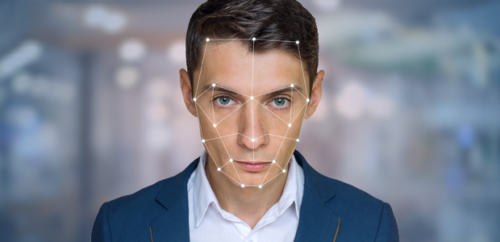In the early 1960s, an unnamed intelligence agency funded the first attempt at automation of facial recognition. Technology has improved, needs have changed and data collection has become significantly smarter since then, allowing facial recognition to have real-world everyday consequences, both positive and negative.
Traditionally a government-centric technology, facial recognition has become the talk of the airline industry, the banking industry, smartphone companies, the computer industry, and more. With accelerated improvements in processing power, facial recognition can be assessed in real time and without the consent of the individual.
What is the social impact our privacy?
The perception was much different pre-September 11, 2001. This perceived type of futuristic technology was only something people saw in Hollywood and fell under the umbrella of Big Brother is watching us. At Super Bowl XXXV the federal government ran a test in which it scoured the 100,000 attendees and reported to have found 19 potential risks. This test was subsequently discovered by the media, leading to public conversation on privacy concerns.
When questioned about the secret test, Tampa police spokesman Joe Durkin expressed, “It confirmed our suspicions that these types of criminals would be coming to the Super Bowl to try and prey on the public.” The dilemma, which in my opinion was the result of 9/11, becomes a conversation about improved security and the impact on our personal privacy.
See also: Facial recognition tech makes it official — you no longer have privacy
Nothing substantial came of this test other than Tampa exploring the use of facial recognition further for a year, with mixed results. Being able to run facial recognition in real time poses all sorts of complications: lighting, facial angles, covered faces, rainy weather. Their testing eventually fizzled out over the next few months.
Public conversation began to shift after 9/11 when fear of terrorism and prevention of said terrorism overshadows the invasion of privacy issue. Would you be willing to have your face scanned as you entered a supermarket, or a concert venue if there was a slight chance it could catch a potential threat? Is this living in fear or is this being intelligent about utilization of technology we have been developing since the 60s? What was once intended purely for government use can now make us safer and provide more convenience in our lives. While futuristic maybe, yes — but so was the iPod and the iPhone, so was an electric car, and a website to connect more that 1 billion people.
These technologies were met with initial adoption resistance, facial recognition has the potential to streamline parts of our life, make them more secure, provide us a greater level of convenience that range from withdrawing money at an ATM to entering your personalized home.
So will facial recognition become part of everyday life? I think this answer is far more complex than I could do justice here. People openly talk about how easy it is to open their iPhones with their thumbprints, willingly giving a public company their biometric information. Clear (Expedited Airport Security) reached their 1-million-member mark for improving your airport experience with biometrics. This technology is actively being tested all around the world and it will only keep improving.
So how strong is your privacy?
If you are worried about your privacy you would need to throw away your credit cards, dump your phone in a lake and not go out in public. Phones now utilize sensors and accelerometers to track our every behavior, understanding exactly when we wake up in the morning, where our offices are, where we shop for groceries, what our interests are and how we spend our time. This to me is the ultimate invasion of privacy, we willingly give up our personal information that these “free” services offer, then turn around and sell for profit, all for a split-second hit of dopamine when someone “likes” a picture we post on Facebook.
Facial recognition is a tool in a larger toolbox of solutions. As with any powerful technology, if it ends up in the wrong hands, it could be problematic. For now, I believe, it is here to stay as it improves the flow of people’s lives and has the potential to silently protect individuals. When we do not understand a shift of behavior and the positive impact it can have, we as a society, always want to resist. Education is the crux to this resistance and once society recognizes the overwhelming benefits offered as a result of facial recognition we will be able to move past the mental hurdles.

















